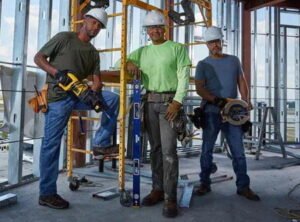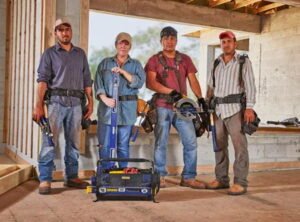

At Solares Energies, we pride ourselves on delivering top-notch heating solutions that blend innovation with sustainability. Our team of skilled heating engineers is at the heart of our commitment to excellence. Specialising in the installation, maintenance, and repair of a wide range of heating systems, our engineers ensure your home or business in Southern Spain enjoys optimal warmth and efficiency all year round. Gas Fitter & Heating Engineer – Solares Energies offer all aspects of quality builders and building engineers. We offer reliable, trustworthy emergency builders, covering the Costa Del Sol and the surrounding areas. We are experienced, professional building contractors with over 15 years of experience.
Are you looking for a local gas fitter or heating engineer that you can rely on? A Solares Energies, we pride ourselves on providing professionally qualified, reliable, and trustworthy tradespeople. Looking for the best heating engineers Malaga has to offer, then look no further.
Whether you’re experiencing heating problems, need to have a brand-new boiler fitted, or are due your annual boiler gas safety check, we have gas fitters and heating engineers available
A gas or heating engineer can help with:
Gas Fitters: A licenced gas fitter or Gas man is trained to repair, service, and replace natural gas appliances and fixtures in residential and commercial properties. Beyond working on the appliances and fixtures themselves, they are also responsible for installing regulators, gas meters, burners, and valves. Many plumbers offer a combination of plumbing and gas-fitting services, but it’s important to note that each is a separate occupation and comes with different qualification requirements.
As a Gas fitter, your duties may include the following:
The reason that you need to hire a natural gas plumber to handle gas fitting services like gas line repair and gas appliance installation is pretty simple. Gas is extremely dangerous to deal with, and in the wrong hands, it can cause destruction, injury, and worse. Under no circumstances should you ever attempt gas fitting services on your own.
A natural gas plumber or gas fitter knows exactly how to perform gas fitting services in a way that is both professional and safe. Our gas fitting specialists are extremely qualified, and they possess years of top-level experience. They’re licensed, bonded, and insured through the state, and they will do the work necessary to make sure that your gas fitting services are handled with the absolute utmost care.
A gas fitter has a very important role within the trades as lives can be at risk if a gas fitter doesn’t follow the correct steps when performing a task. A gas fitter’s main duties would include:
Connecting to main gas lines – A gas fitter’s most important job is connecting your home to gas lines. Gas lines ensure that your household has sufficient gas for cooking, warming water, temperature control, etc.
Maintaining gas fixtures – We advise you to get your gas connections checked by a gas fitter at least once a year. Even if there are no faults and damages, gas leaks are not usually detectable. However, watch out for some tell-tale signs like gas odour, dead indoor plants, bubbling near pipes, etc.
Ensure gas supplies are functioning – A gas fitter’s responsibility is to ensure that your appliances are functioning well to prevent gas-related accidents. They must check if the appliances are correctly connected to the gas line, reducing the chances of gas leaks.
Only an efficiently conducted pipe installation can ensure a steady supply of gas. Hence, the connection should be such that the appliances can tap into the gas line while accessible for everyday use.
Repairing gas appliances – Gas fixtures require regular repairs as they deal with harmful gases and substances. Thus, a gas fitter should be adept at repairing gas meters, regulators, burners, and more.
Since gas regulators and meters are essential for ensuring proper gas supply, you should immediately fix any damage to these devices. So, if you notice incorrect gas readings and other mechanical problems with your gas devices, call a gas fitter right away.
Troubleshooting gas issues – If you cannot find the root cause of a gas line problem, you should trust a gas fitter to evaluate the issue correctly. Since they are professionally trained and licensed to identify such issues, you can rest assured that the safety of your household is in good hands.
However, we suggest noting signs of trouble and disconnecting your appliances while the gas fitter is on the way. This will help make their job easier and faster.
Installing gas safety systems – A gas fitter can safeguard your home by suggesting preventive measures and installing safety systems. Since gas-related accidents often occur without warning, it is best to protect yourself by installing devices to protect you from further damage.
Fixing flues – Flues allow waste gases to escape from your house. Without an exit point, these waste gases will remain in your home and pollute the indoor environment. Plus, some of these gases can be fatal. Thus, a gas fitter secures the connection between gas appliances and exit channels.
Heating Engineers: As the name suggests, heating engineers focus solely on work related to domestic and commercial heating systems. There’s still a lot of variety even within this field: heating engineers could be installing a gas boiler or fixing a central heating system one day, then find themselves being called out to fix some ductwork in a commercial environment the next.
Some individuals will train specifically to be heating engineers but many engineers progress from starting as a plumber.
They usually take the NVQ level 3 qualification, with diplomas specialising in carrying out electrical work on heating systems and servicing and maintaining hot water systems. Heating engineers will work on:
It’s important to note that not all heating engineers will be able to carry out the above work. This is because to work on gas appliances (e.g. gas boilers or gas cookers) it is a legal requirement to be Gas Safe registered.
So, a heating engineer who doesn’t have this certification couldn’t connect a boiler to a gas supply but could wire the heating controls and thermostat.
A heating engineer will work solely on heating in domestic and commercial properties rather than working across various disciplines, making them specialists in heating. For this reason, you may prefer to contact a heating engineer rather than a plumber, as they may be more familiar with your issue.
Heating engineers are experts in fixing boilers and can complete tasks including installing new boilers, repairing boilers, running new gas pipes, fixing gas leaks, changing radiators, fixing leaks, and installing heating controls.
Again, you should still ensure that your heating engineer is Gas Safe registered before allowing them to work on your boiler. Call A Heating Engineer If:
When to contact a heating engineer – When it comes to the work heating engineers carry out, the clue is in the name. They’re trained to service, repair or replace parts of your home’s heating system, which includes:
By law, the heating engineer must be Gas Safe registered if they’re going to be working on gas-fired appliances and hold OFTEC certification for working on oil boilers.
When to contact a plumber – When you need a professional to deal with issues or carry out installations of appliances that involve water, you need a plumber. Some of the work a plumber is trained to do involves. Also see Emergency Plumbers Marbella
![]() Written By:
Written By:
Wesley Lally
![]() Updated on:
Updated on:
07th May 2024

![]() Windows & Doors
Windows & Doors





At Solares Energies, we are deeply committed to offering outstanding heating and cooling engineering services, crucial for maintaining comfortable and energy-efficient environments in Southern Spain. Our team of certified heating and cooling engineers excels in optimising indoor climate control, ensuring your spaces are perfectly tempered year-round.
We specialise in a comprehensive range of heating and cooling services, ideal for both residential and commercial environments. Our expertise goes beyond mere installation; we focus on creating sustainable, energy-efficient systems. Our professionals are skilled in a variety of tasks, from the installation of advanced HVAC systems to routine maintenance and repairs, all customised to suit the specific requirements and characteristics of your space.
Quality and Efficiency: We are dedicated to delivering high-quality heating and cooling solutions, focusing on systems that offer maximum efficiency and sustainability, enhancing your comfort while minimising environmental impact.
Technical Expertise and Innovation: Our team is equipped with years of experience, technical expertise, and a commitment to staying abreast of the latest advancements in HVAC technology, ensuring state-of-the-art solutions for your needs.
Customised Climate Control Solutions: Recognising that each client has unique requirements, we offer personalised heating and cooling services tailored to meet your specific comfort needs and preferences.
Reliable and Timely Service: We understand the importance of a reliable climate control system. Our commitment to prompt and dependable service means your heating and cooling projects are completed on time and with the highest level of professionalism.
Enhancing Property Value: A modern, efficient heating and cooling system not only improves the comfort of your property but can also significantly increase its market value.
![]() Expert Installation and Maintenance: Professional engineers ensure that heating and cooling systems are installed and maintained correctly, which is crucial for optimal performance and longevity.
Expert Installation and Maintenance: Professional engineers ensure that heating and cooling systems are installed and maintained correctly, which is crucial for optimal performance and longevity.
![]() Energy Efficiency: Professionals have the expertise to recommend and install the most energy-efficient systems, which can lead to significant savings on energy bills over time.
Energy Efficiency: Professionals have the expertise to recommend and install the most energy-efficient systems, which can lead to significant savings on energy bills over time.
![]() Safety: Heating and cooling systems involve complex electrical work and handling of potentially hazardous materials like refrigerants. Professionals are trained to manage these safely.
Safety: Heating and cooling systems involve complex electrical work and handling of potentially hazardous materials like refrigerants. Professionals are trained to manage these safely.
![]() Customised Solutions: Professionals can assess individual needs and provide tailored solutions that suit specific environmental and architectural requirements.
Customised Solutions: Professionals can assess individual needs and provide tailored solutions that suit specific environmental and architectural requirements.
![]() Advanced Technology: Professionals stay updated with the latest technology and can offer modern solutions for better climate control and energy savings.
Advanced Technology: Professionals stay updated with the latest technology and can offer modern solutions for better climate control and energy savings.
![]() Warranty and Support: Professional services often come with warranties and ongoing support, providing peace of mind and assistance in case of any issues.
Warranty and Support: Professional services often come with warranties and ongoing support, providing peace of mind and assistance in case of any issues.
![]() Increased Property Value: A well-maintained and efficient HVAC system can increase the value and appeal of a property.
Increased Property Value: A well-maintained and efficient HVAC system can increase the value and appeal of a property.
![]() Higher Initial Costs: Professional installation and maintenance services can be more expensive upfront compared to DIY solutions.
Higher Initial Costs: Professional installation and maintenance services can be more expensive upfront compared to DIY solutions.
![]() Dependence on Service Providers: Relying on professionals might lead to dependency on routine checks and emergencies, potentially causing inconvenience if immediate service is not available.
Dependence on Service Providers: Relying on professionals might lead to dependency on routine checks and emergencies, potentially causing inconvenience if immediate service is not available.
![]() Scheduling and Availability: Getting an appointment that suits your schedule might be challenging, especially during peak seasons when demand for HVAC services is high.
Scheduling and Availability: Getting an appointment that suits your schedule might be challenging, especially during peak seasons when demand for HVAC services is high.
![]() Over-Reliance on Technology: Advanced systems recommended by professionals might be complex, leading to challenges in understanding and operating them for some users.
Over-Reliance on Technology: Advanced systems recommended by professionals might be complex, leading to challenges in understanding and operating them for some users.
![]() Potential for Mismatched Expectations: Miscommunication between the homeowner and the service provider could lead to solutions that don’t perfectly align with the homeowner’s expectations or needs.
Potential for Mismatched Expectations: Miscommunication between the homeowner and the service provider could lead to solutions that don’t perfectly align with the homeowner’s expectations or needs.
![]() Limited Control Over the Process: Some homeowners may prefer more involvement in the process of installation and maintenance, which is less feasible when hiring professionals.
Limited Control Over the Process: Some homeowners may prefer more involvement in the process of installation and maintenance, which is less feasible when hiring professionals.
 Solares Energies has a full range of renewable energy products available for the home or business. If you would like to learn more please navigate to our “Renewable Energy Products and Services Page” or complete the “GET A QUOTE” enquiry form at the top of this page and an experienced engineer will call you back, at a time best suited to you.
Solares Energies has a full range of renewable energy products available for the home or business. If you would like to learn more please navigate to our “Renewable Energy Products and Services Page” or complete the “GET A QUOTE” enquiry form at the top of this page and an experienced engineer will call you back, at a time best suited to you.




Find a local building contactor with Solares Energies
Solare energies can help you find the best tradesperson
Looking for a tradesman? – We can help
Need a local tradesperson to complete a job?
Tradesmen and Tradeswomen available upon request
Need a local tradesperson – We can help
We find local carpenter and joiners, so you don’t have to
Need help with a home improvement?
© 2024 SOLARES ENERGIES ALL RIGHTS RESERVED POWERED BY MINUS 5 MEDIA & DIGITAL MARKETING AGENCY.ES
